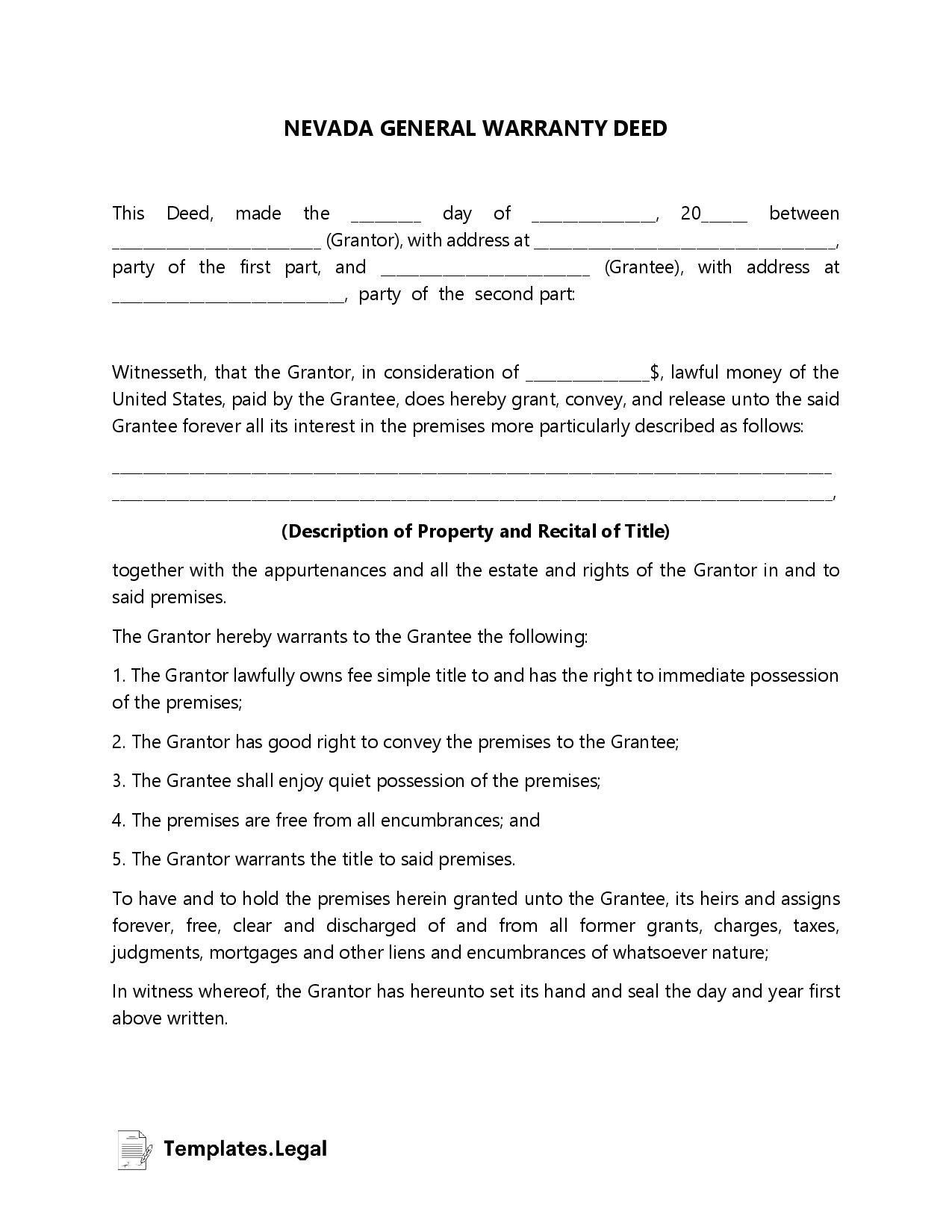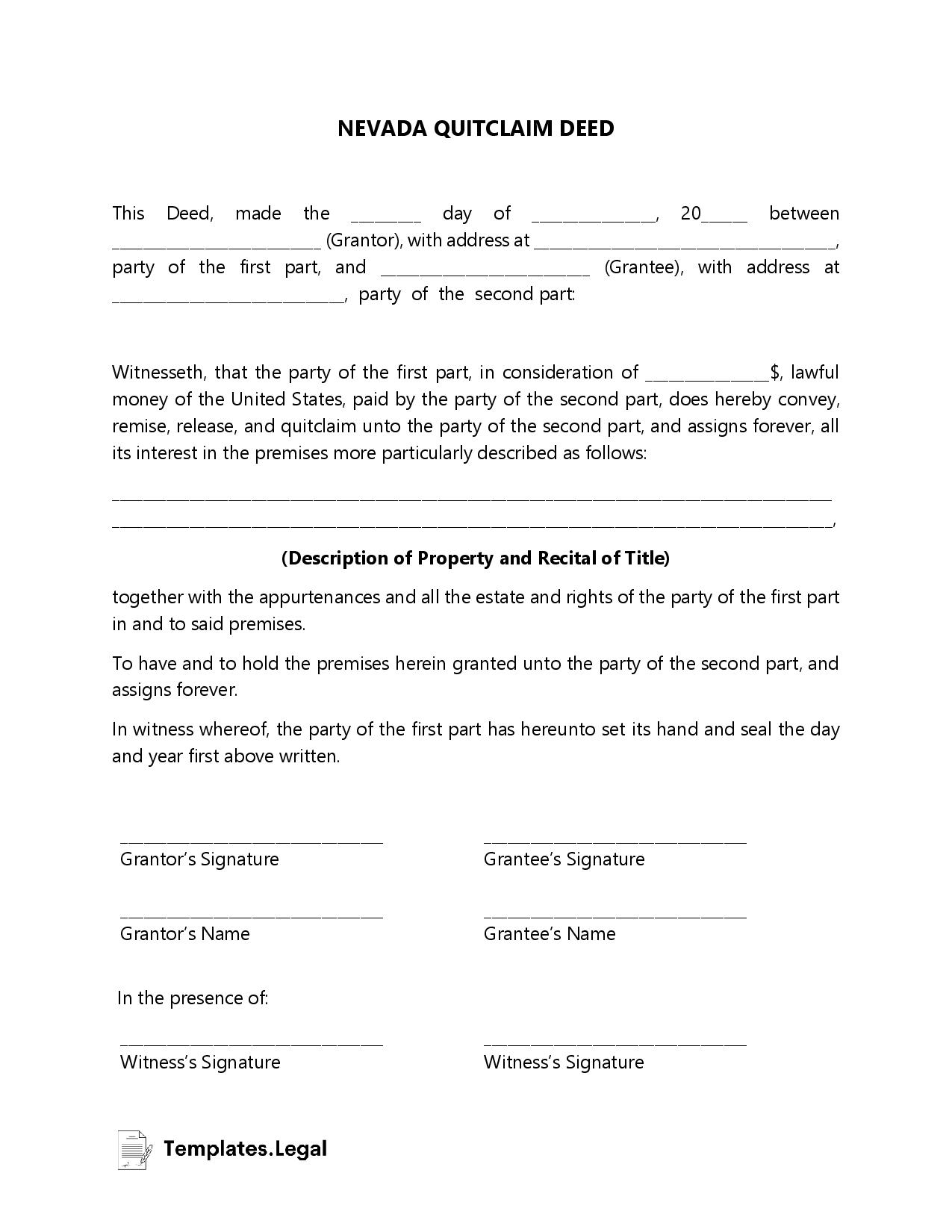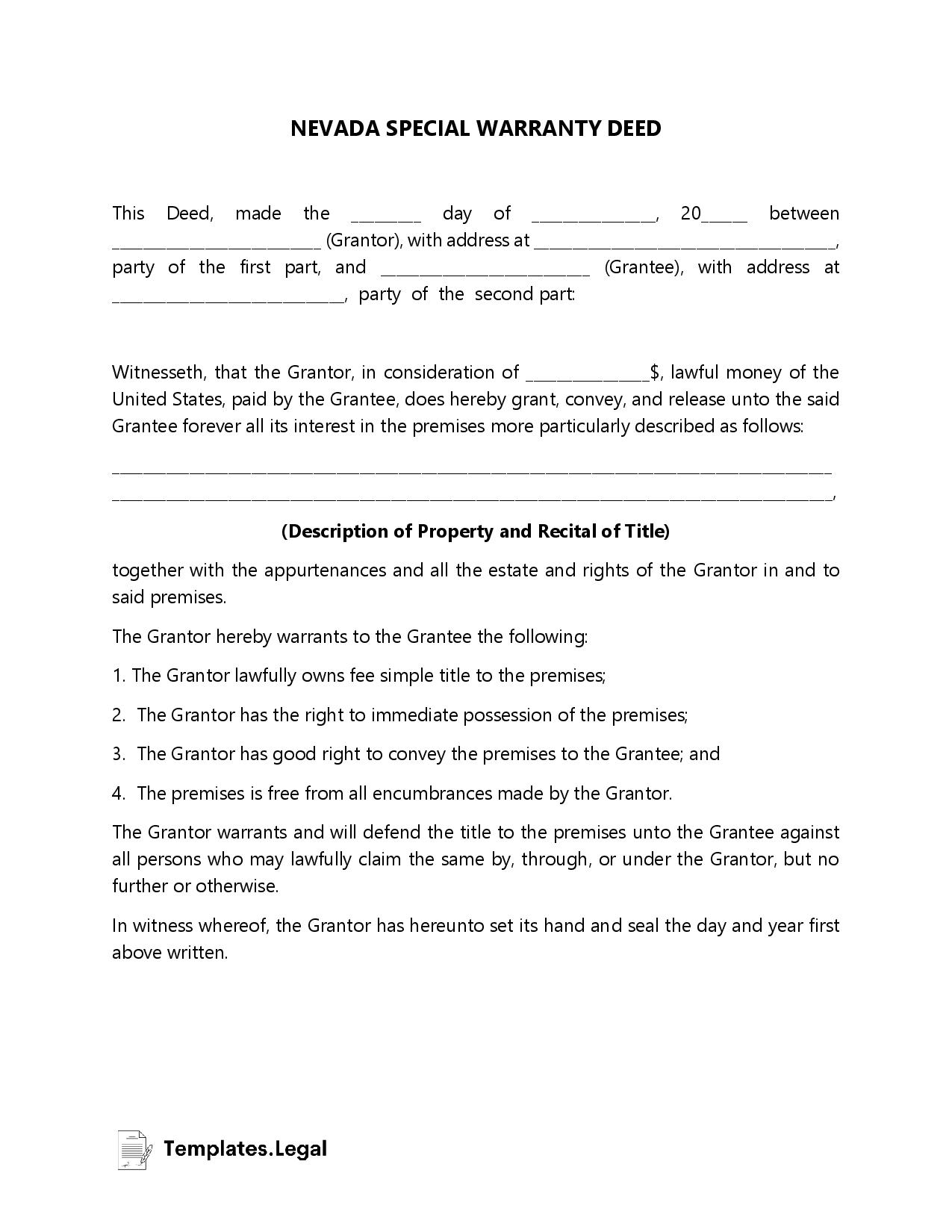Nevada Deed Forms & Templates
Nevada deed forms convey property from a seller or grantor to a buyer or grantee.
There are four types of deed forms in Nevada, including general warranty deeds, quitclaim deeds, special warranty deeds, and deeds of trust. Except for trust deeds, these crucial property transfer documents are regulated under Nevada law NRS-111. Trust deeds work a little differently and fall under NRS-107.
Regardless of deed type, Nevada law requires that the grantor and grantee sign the deed in the presence of a notary public. All deeds also have to be filed at the local county recorder’s office.
Nevada General Warranty Deed
A Nevada warranty deed or general warranty deed warrants that the seller owns the property they’re offering free and clear. That means there are no outstanding liens or mortgages on the property.
A general warranty deed provides the maximum amount of protection for the buyer. Because the buyer doesn’t have to worry about any potential encumbrances on the property, this type of deed is common when the buyer and seller are strangers.
Nevada Quit Claim Deed
A quitclaim deed provides very little protection to the buyer, but it’s one of the fastest and simplest deeds available. Quitclaim deeds don’t warrant or pledge anything about the owner’s property title.
So, unlike a general warranty deed, the owner doesn’t need to pledge they own the property free and clear. Instead, they only pledge to transfer any interest they hold in the property. Because of this, quitclaim deeds are usually between family members or people who know one another well.
Nevada Special Warranty Deed
In a special warranty deed, the seller or grantor pledges against any encumbrances in the property title while they physically owned the property. It doesn’t protect the buyer from older title claims, making this deed option a little riskier than a general warranty.
Special warranty deeds are typical when a property is in foreclosure.
Nevada Deed of Trust
A deed of trust works differently than other Nevada property deeds. Deeds of trust are between the buyer of a property and their lender, usually a bank. They also require a neutral third party, typically an escrow or title company.
In a deed of trust, the buyer pledges to repay their loan to the bank. If they fail to make the proper payments, a deed of trust gives the financial institution a path to foreclosure on the property.
Frequently Asked Questions
Nevada deed forms can be complicated and may come with additional questions, like the ones below.




